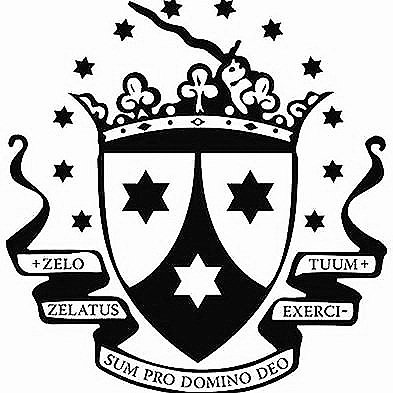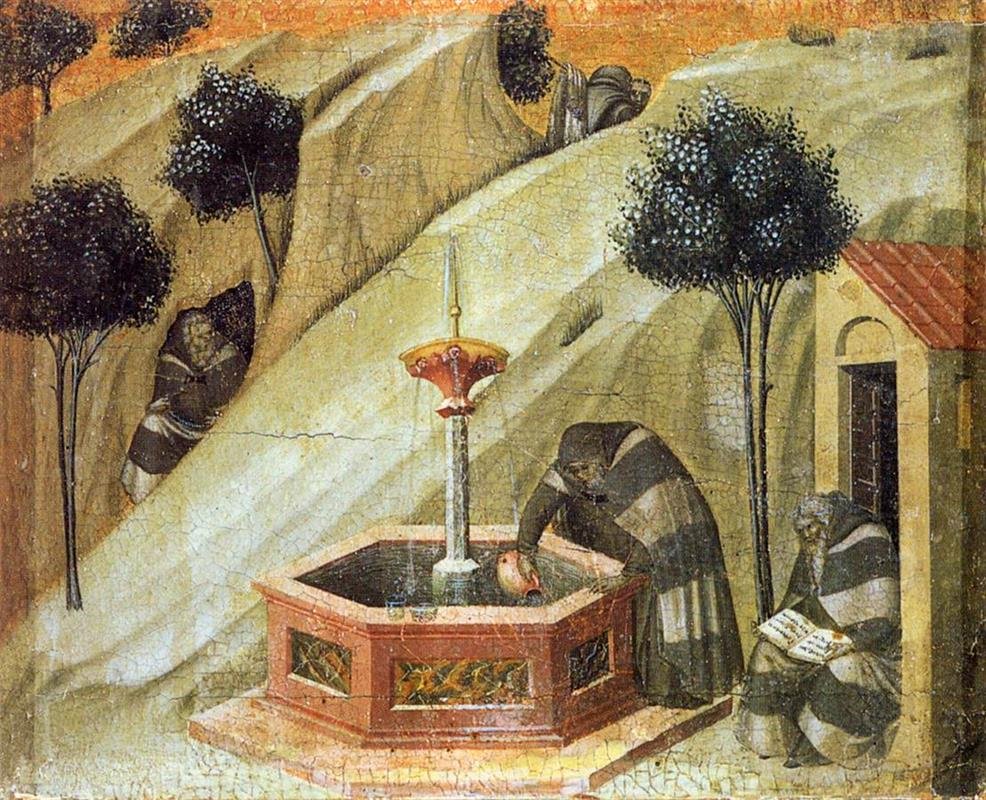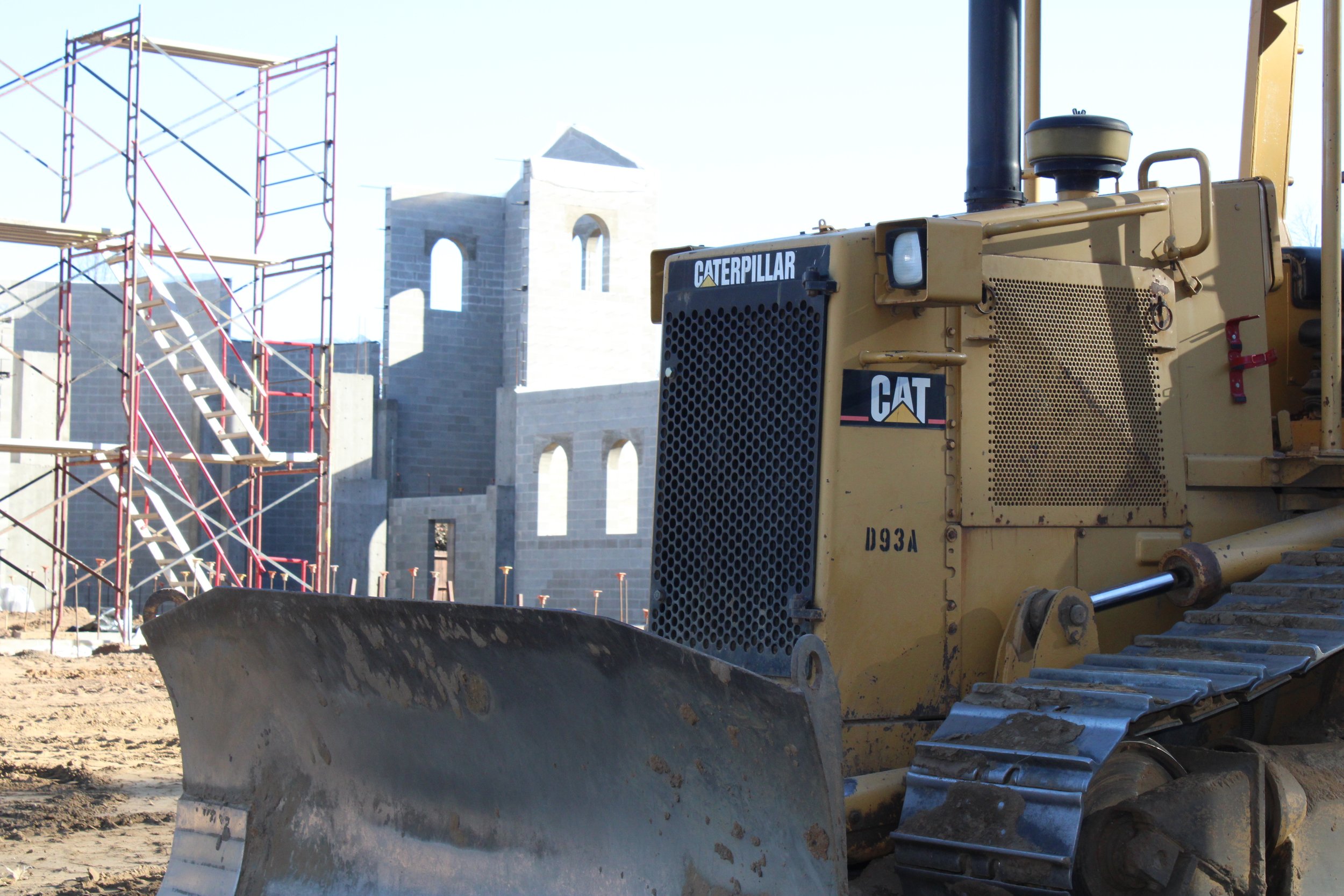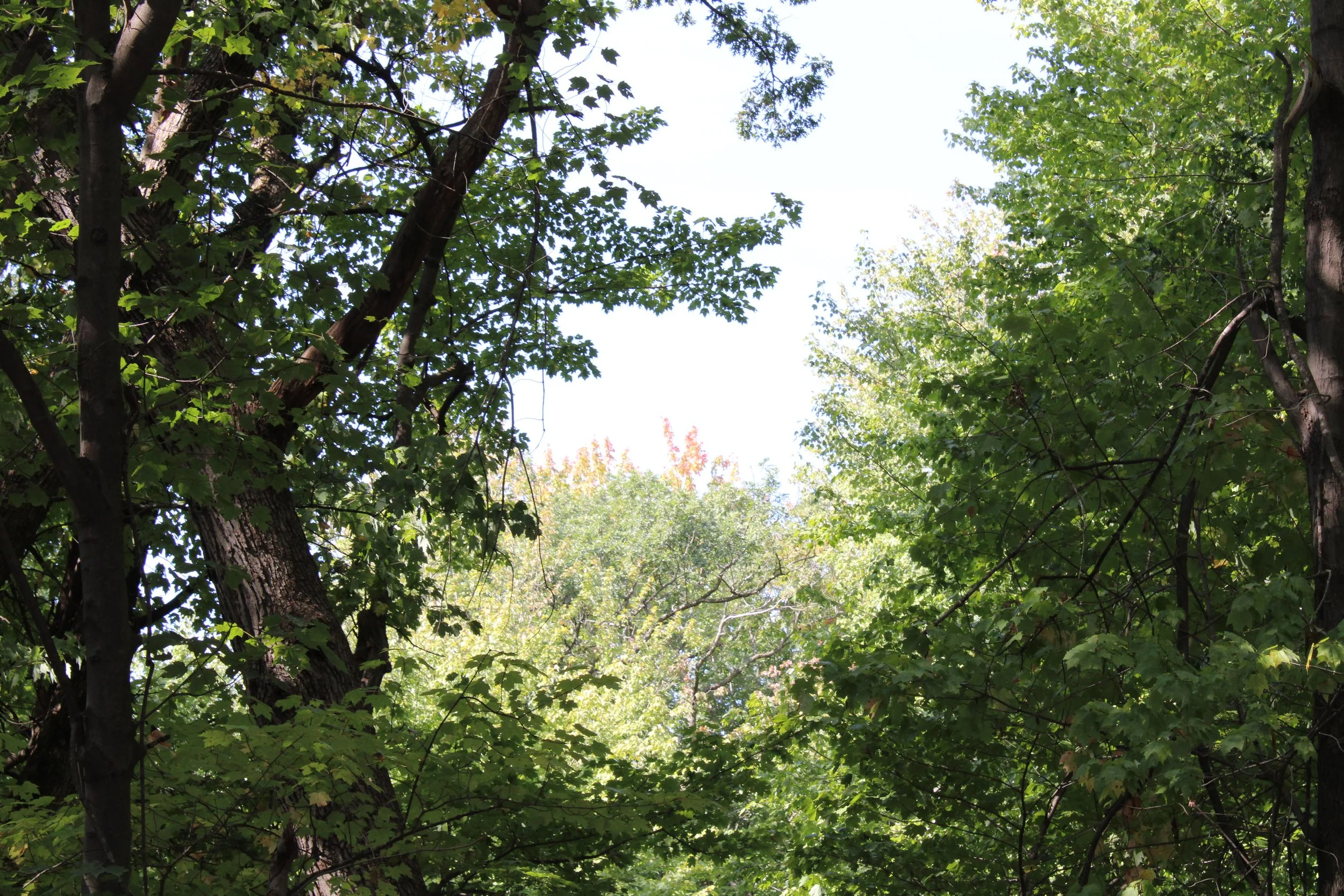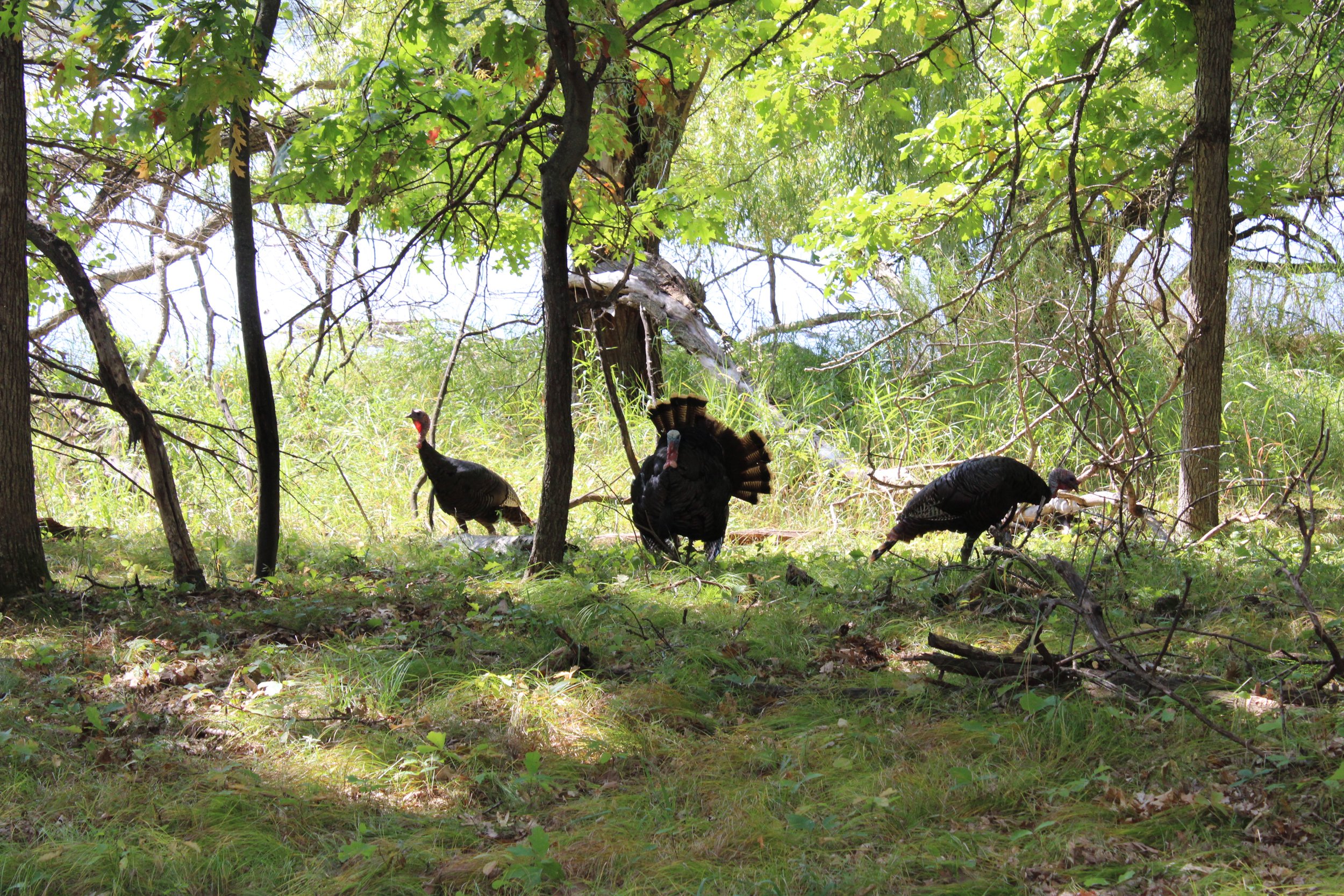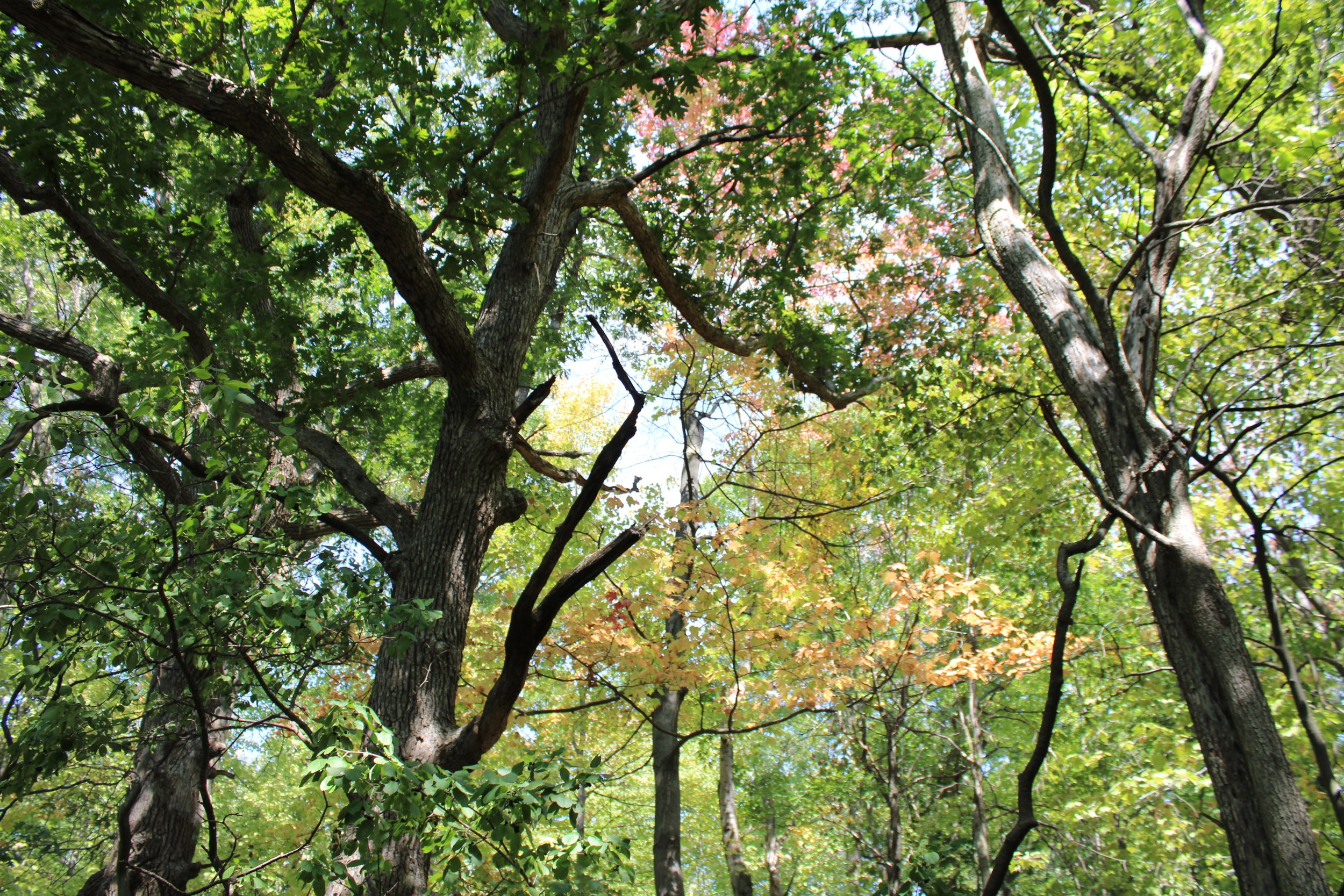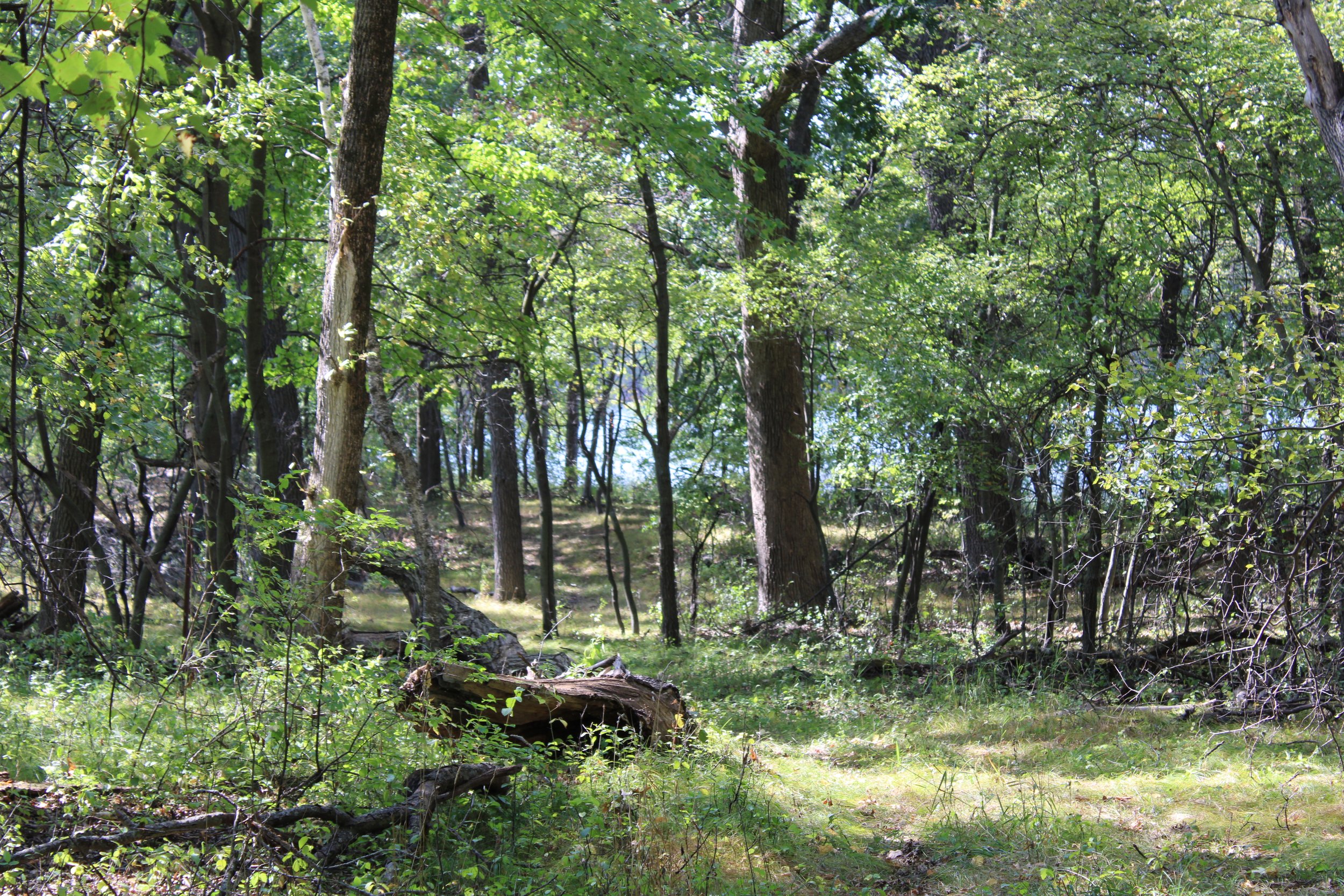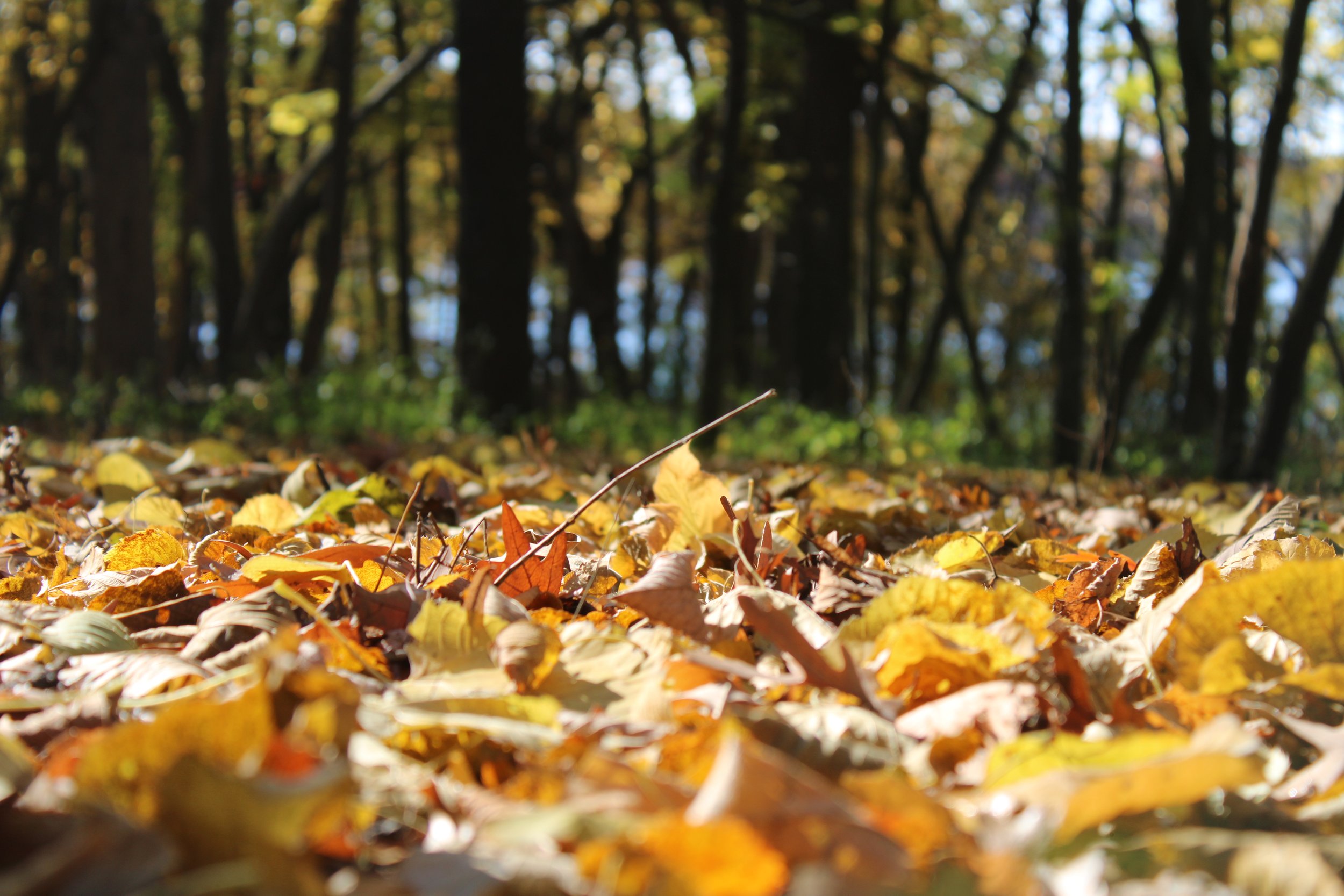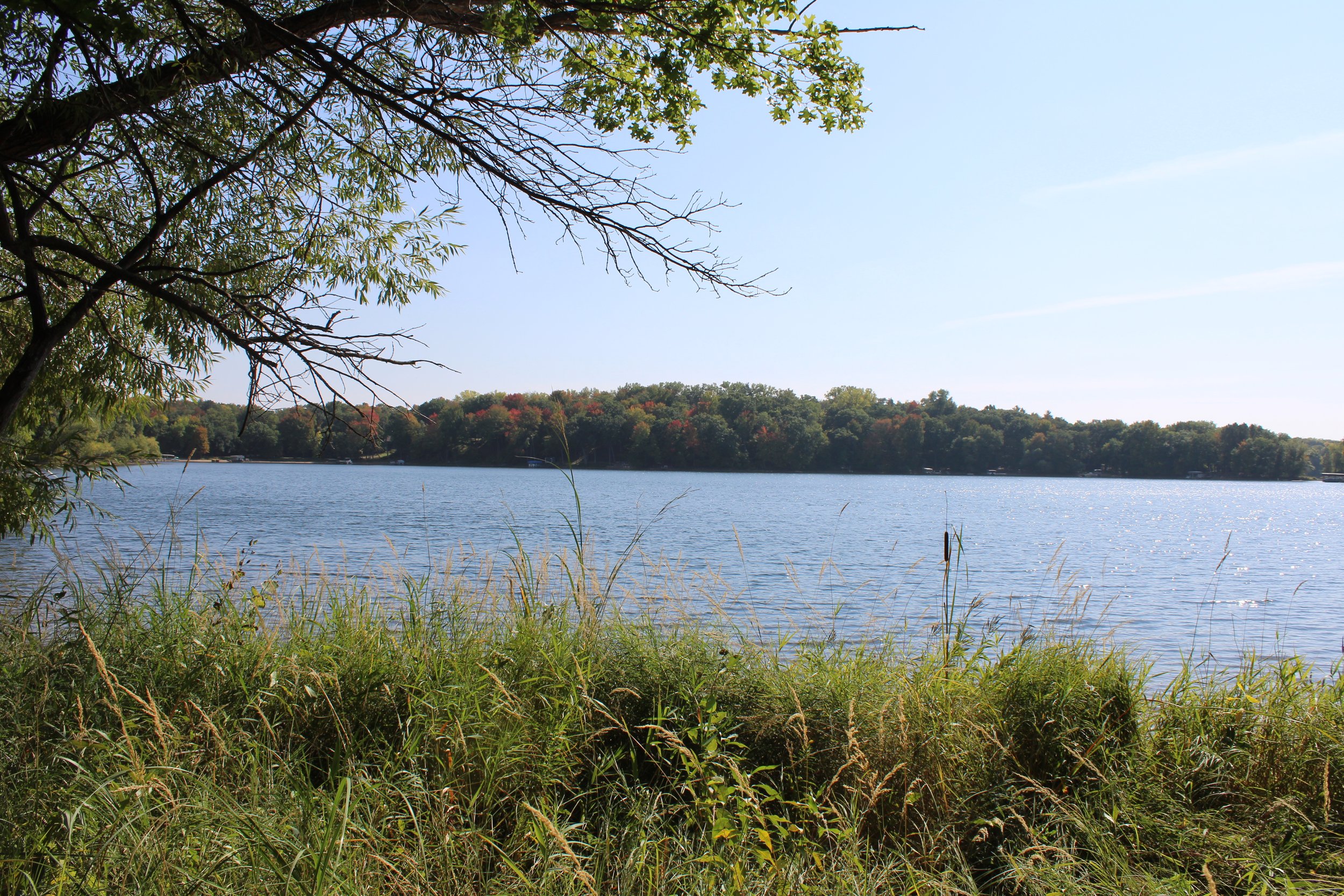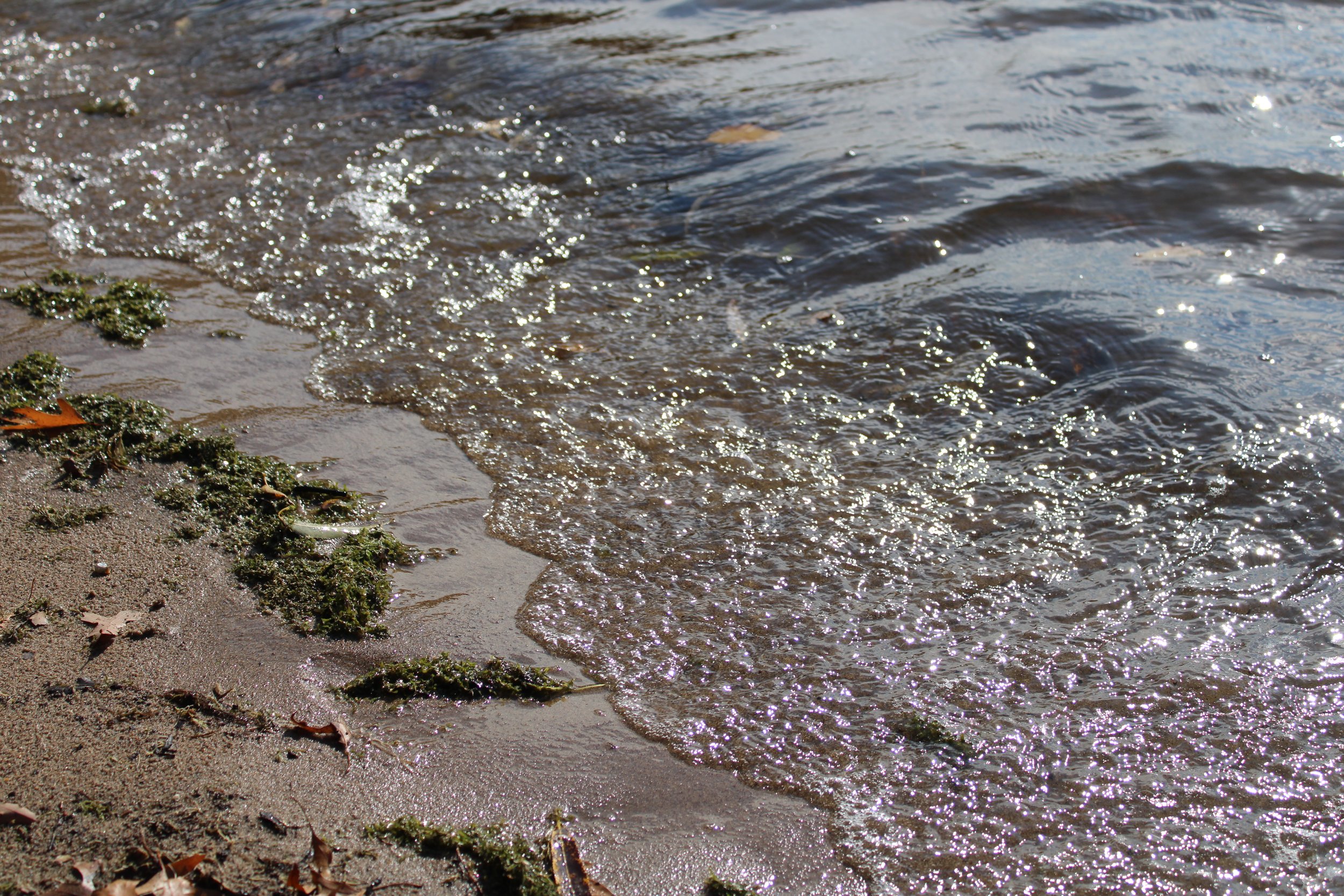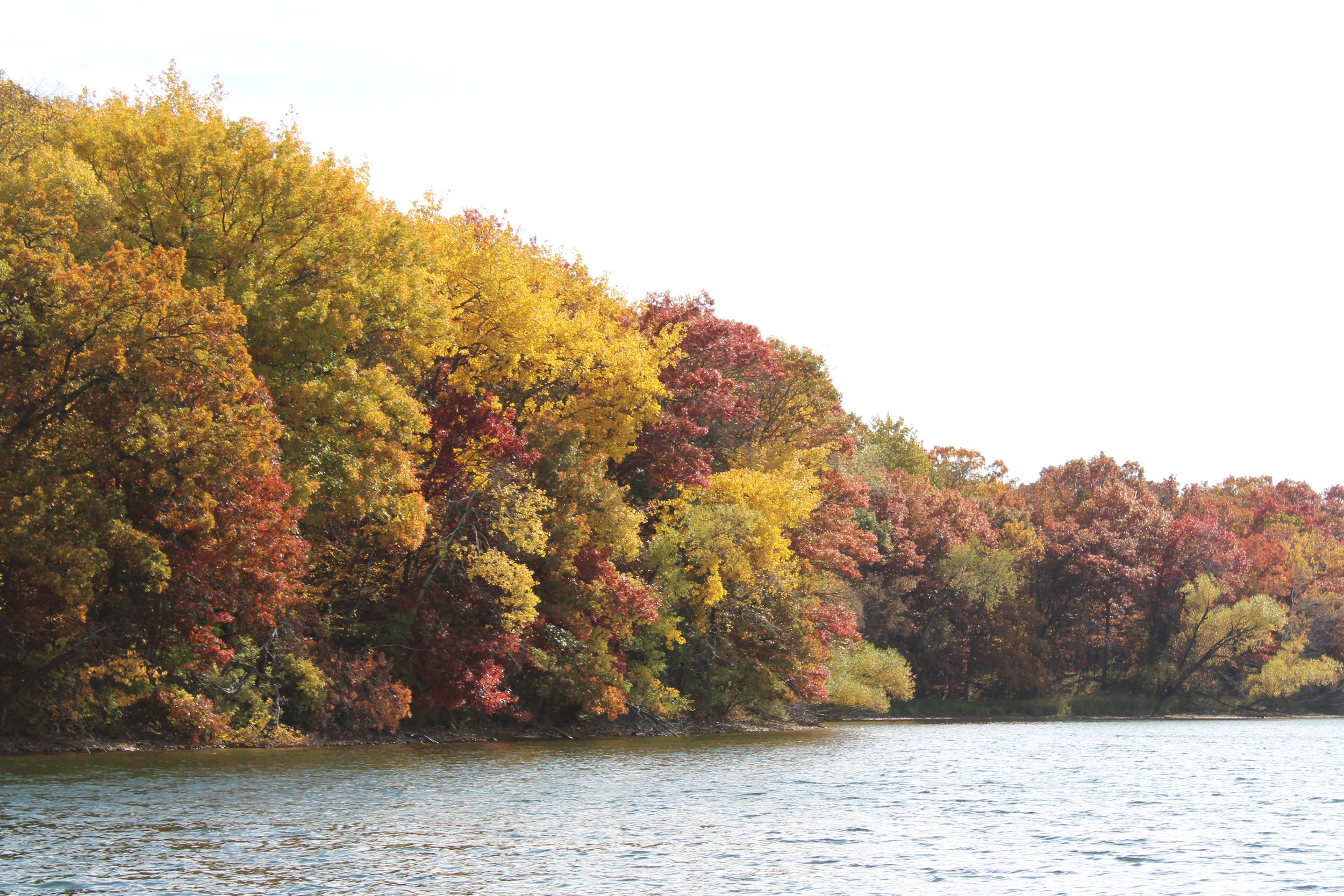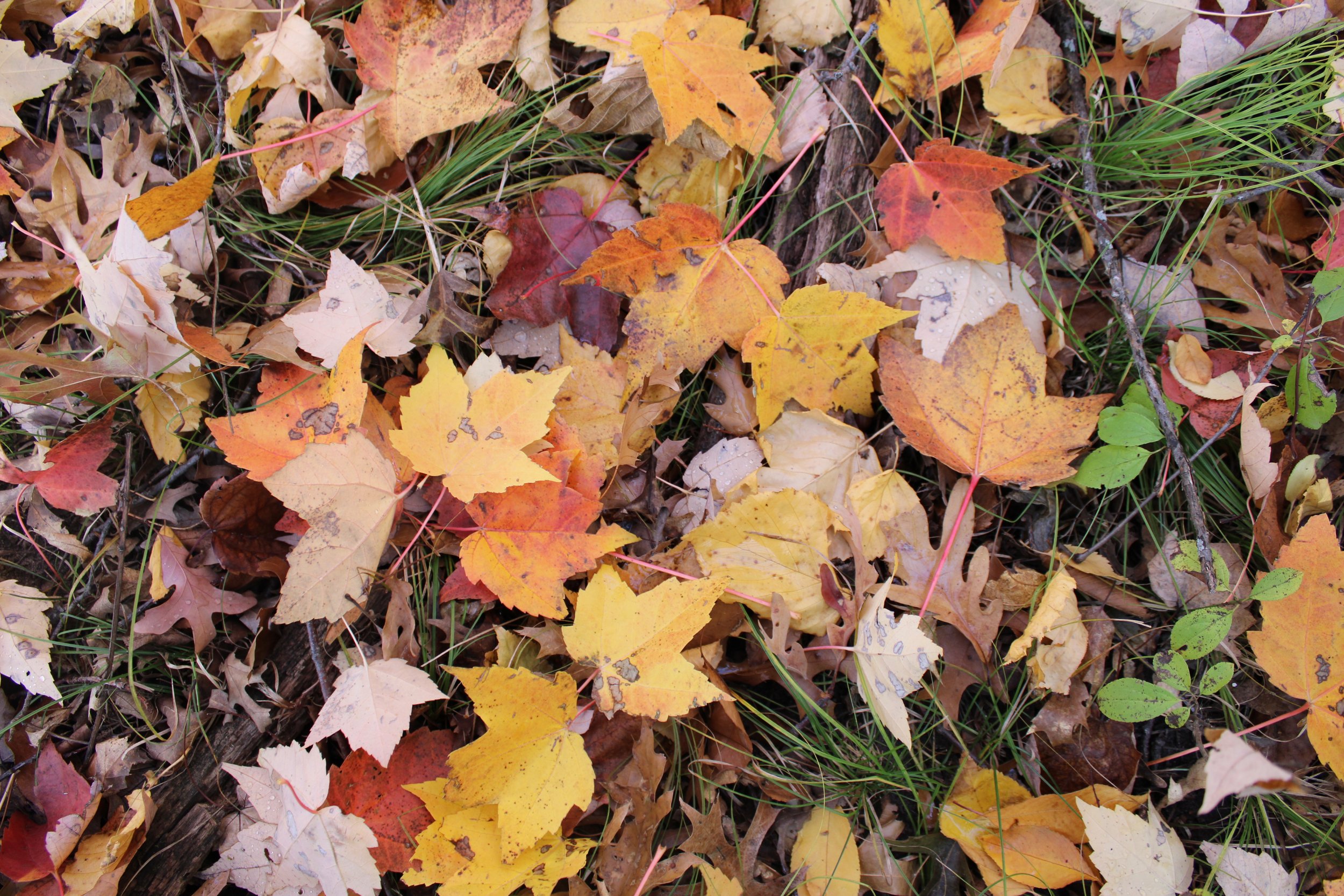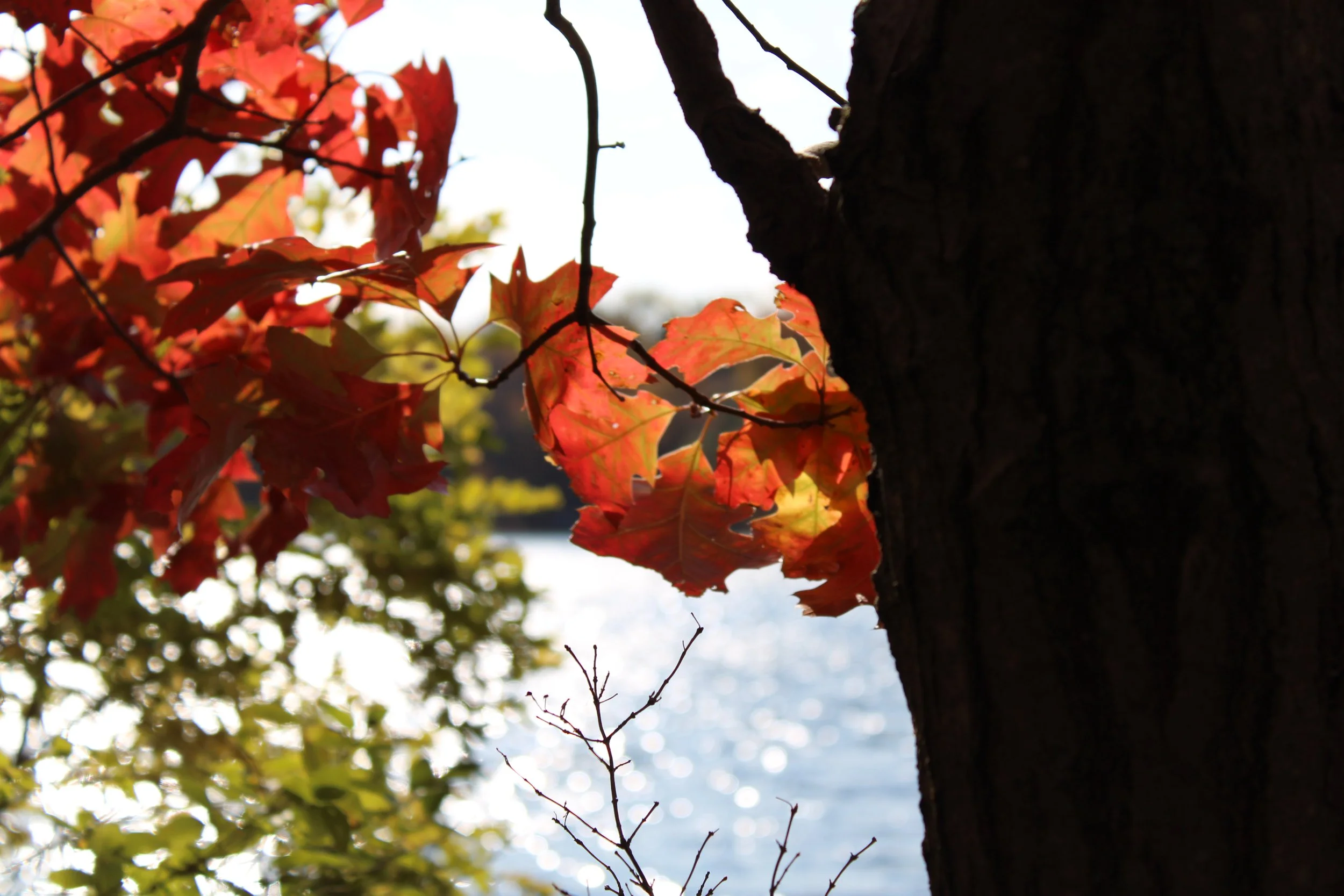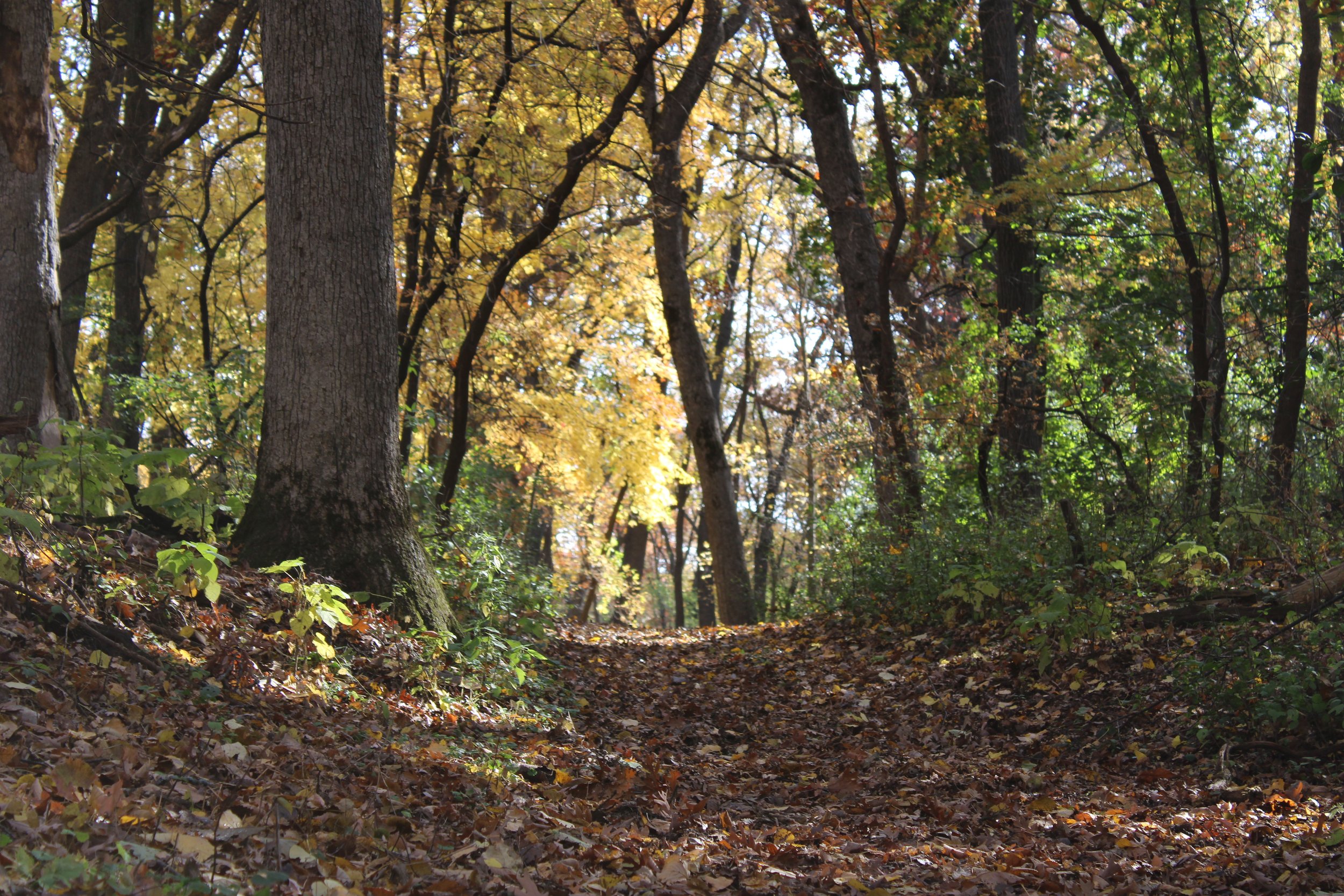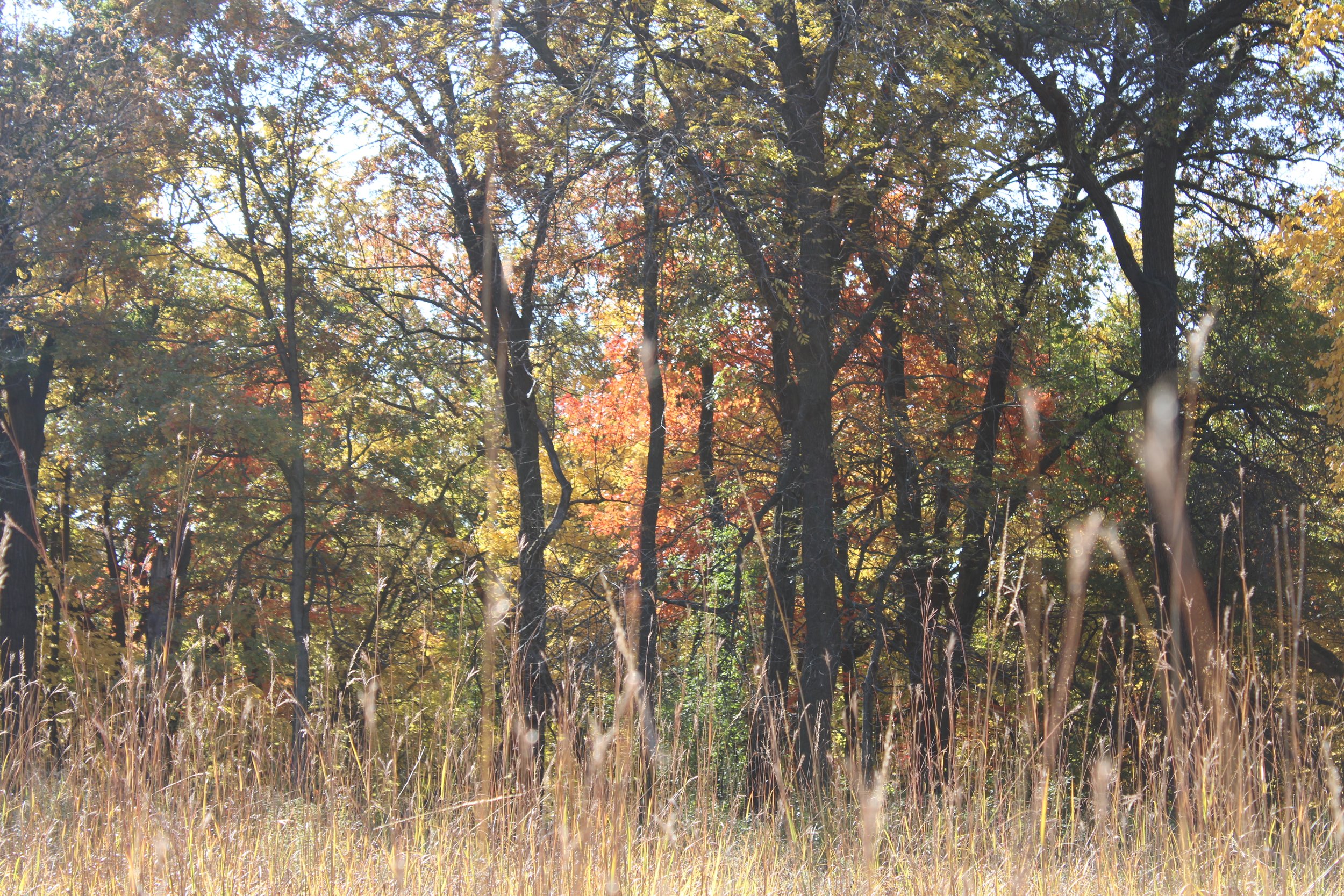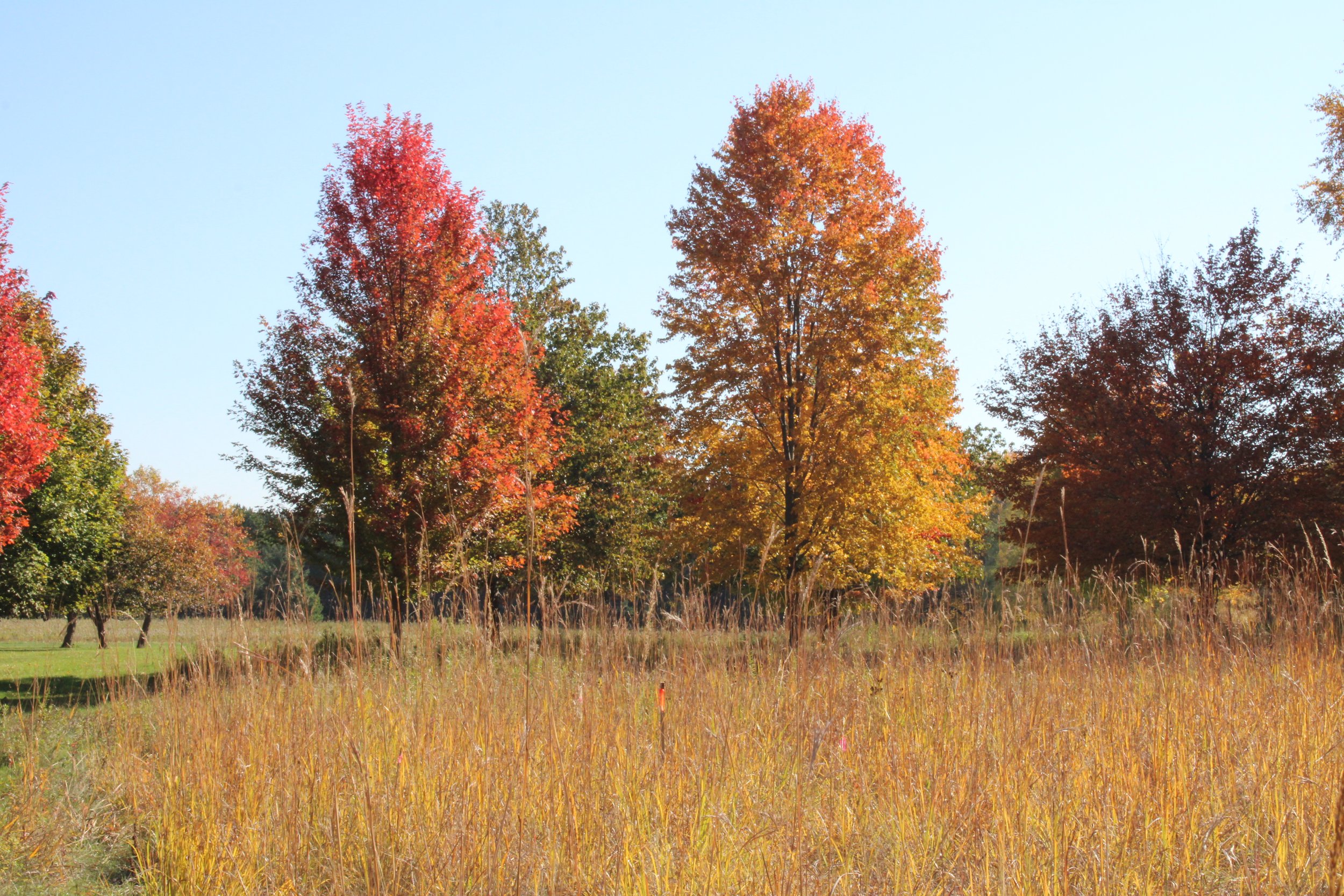"In Company with the Strong"
In this post you will find:
Light for the Way, Love for the Wayfaring: “In Company with the Strong”
Prayer Corner - Prophet of Carmel - “Neither Dew nor Rain”
Construction Update from the Prior of the Hermitage
Fall Colors: The Grand Finale
There have been many blessings this year. We give thanks to God, in the first place, for all the progress that has been made on our building project. We are also grateful for all of you, who are friends and benefactors of our monastery. Your faith-filled support is truly a gift and has helped us to get where we are in the construction of our public chapel. We do not cease giving thanks for you, remembering you in our prayers! We wish you and your families a blessed Thanksgiving Day. We hope you enjoy our e-newsletter and all the beautiful pictures. May God bless you!
The Carmelite Hermits
Light for the Way, Love for the Wayfaring:
“In company with the strong”
In the experience of suffering, the assumption is usually that God has abandoned us. Suffering is a privation of one kind or another. Because of some affliction in body, mind, or soul, we feel that we are being deprived of the happiness that we desire and for which each of us was made. Furthermore, in our suffering, it is easy to give in to the impression that we are all alone - that no one understands or could relate to what it is that we are going through at this difficult moment. This may be true, simply because there is something very intimate about suffering which cannot be communicated to another. If the pain is extreme it may also seem that everyone and everything is failing us. The privation caused by suffering is an evil, but it does not go completely unredeemed. The word from John of the Cross today bears within it some very good news. There is some benefit to suffering, trial, and temptation. Our present question is: "what good can come out of suffering?"
John of the Cross is here to answer this question about suffering. One of the reasons, this Carmelite mystic appealed to me immediately in my first reading of him over 16 years ago, was his ability to speak to the issue of suffering so universal to us all, providing some meaning in the experience. I came to learn, reflecting on his sage advice and the example of his own life, that human suffering is not just a negative. In fact, there are many positives in our trials, discomforts, and desolations. St. John of the Cross helps us to understand the meaning behind this mystery of human existence. He knows what suffering is all about.
Let's start with the example of his life. There are many instances of privation and suffering in John's life from the poverty of his childhood to his final illness in Ubeda. We will focus on the most important one: his time in the prison cell of Toledo. One night in December, St. John was returning from the nun's monastery of the Incarnation in Avila, where he was serving as chaplain, to his residence on the same property. Suddenly, he was abducted, blind-folded and brought secretly to the Carmelite Monastery of calced friars in Toledo.
He was imprisoned under the pretext of living as a recalcitrant religious, a friar "rebellious and contumacious." John of the Cross was placed in a cell where there was barely enough room to stand. The cell was no more than six feet wide and ten feet long. There was one window (no more than two inches wide) towards the ceiling of the room from which some light and a little air would come. The cell was freezing cold in the winter and blazing hot in the summer. It was a place of darkness and utter squalor. He was placed on a diet of bread and water. On Fridays and other days, he was brought to the refectory where he was beaten with a discipline, each of the 85 friars of the community taking turns while reciting the Miserere (Psalm 51). John of the Cross would bear the scars on his back from these episodes for the rest of his life. These calced friars tried everything, from bribery to feeding him false information about the failure of the reform, in order to get him to renounce his life as a discalced Carmelite - a way of life which he had begun with St. Teresa of Jesus. He would remain faithful and persevere through it all, escaping nine months later during the octave of the Assumption of the Blessed Virgin Mary.
John's experience of suffering would span the spectrum of the physical and the psychological and move even into the depths of the spiritual. During that period of physical and emotional privation and darkness, he would experience a dark night of the spirit. God's presence vanished and he felt alone and abandoned. He did not even have the support of prayer and was refused the ability to celebrate Mass. He prayed his Divine Office by what little light came from the tiny window of his cell. In short, his suffering was total. Like Christ on the Cross, John was suspended between heaven and earth without any tangible support from above or below. The experience of suffering in prison gave St. John of the Cross light and understanding about the nature of the spiritual night through which the soul must pass in order to arrive at union with God. In his commentary on the Dark Night he writes:
"They resemble one who is imprisoned in a dark dungeon, bound hands and feet, and able neither to move nor see nor feel any favor from heaven or earth. They remain in this condition until their spirit is humbled, softened, and purified, until it becomes so delicate, simple, and refined that it can be one with the Spirit of God, according to the degree of union of love that God, in his mercy, desires to grant. In conformity with this degree, the purgation is of greater or lesser force and endures for a longer or shorter time." (Dark Night II, 7, 3).
This is about as close as we will get to an autobiographical account of John's own suffering in Toledo. It says everything, however, demonstrating that his experience was not just a privation, a negative event without meaning or value. A positive good was born out of this event in the Carmelite mystic's life - union with God. Great darkness in the life of John gave way to great light.
We might pause now and ask ourselves once more, "what could possibly be the point of all that suffering?" St. Teresa will be the first to reply when she exclaims that no one had suffered more for the discalced reform than her little Seneca, St. John of the Cross. Teresa may have described him as "half a friar" (due to his diminutive stature) but Fray John never did anything by half measures! He gave his whole heart and soul to Carmelite religious life and the Teresian reform, dedicating himself to the exercises of the interior life and contemplation. He suffered for his dedication, and yet, it proved him true. All the suffering united him more completely to Jesus his Beloved and the Cross. In the Ascent of Mount Carmel, John of the Cross explains that Christ accomplished his greatest work on the Cross. In the complete annihilation of Christ on the wood of the Cross, in both body and spirit, Jesus worked the reconciliation of humankind to God. John would live out the paschal mystery in his own life and arrive at the most sublime state of interior grace by his suffering; union with God in the darkness. His poem Dark Night, written while in his prison cell, describes the significance of this period of trial: "O guiding night! O night more lovely than the dawn! O night that has united Lover with his beloved, transforming the beloved in her Lover." This is just a sketch to give an impression of the value of suffering in the life of the Christian - it leads to union with Christ! Trial and transformation are one in the person of St. John of the Cross. Trial, temptation, and suffering all leads to the transformation of the human person in God. It changes us… for the better!
The saying with which we started this reflection serves as a word of direction for times of trial and difficulty. The first lesson: we are weakness itself. It should amaze us, then, that we try so hard to rely on our own strength. Self-reliance is an illusion. The burden of suffering makes us rely on the only One who is strong, the Almighty. In suffering, the soul learns to live in God's company and to lean on him. The burden of suffering tells us that God is close. When we are free of the burden, it just might mean that we have thrown off the yoke and run from the company of God. Jesus says: "…my yoke is easy, and my burden light." (Mt 11, 30). The yoke of the Cross is light and easy because Jesus bears the greater part of the suffering. God abides with the afflicted. Jesus knows what is in your heart and what it is that you suffer. He suffers in us and with us. You are not alone in your suffering! Do not be tempted to throw off the Cross. In patience remain in the trial and trust with silent love; for "virtue and strength of soul grow and are confirmed in the trials of patience." Suffering is not a privation. It is the boon of great goods - the greatest gifts of God, a sign of his love for us and union with him.
Prayer Corner
-Prophet of Carmel-
“Neither dew nor rain”
Elijah and His Prophetic Oath:
"…there shall be neither dew nor rain these years, except by my word…" (1 Kgs 17, 1).
Elijah takes upon himself a formal oath. With the words, “As the Lord God lives…”, he solemnly invokes God to assert the truth of his present claim. The prophet will demonstrate that the living God and not Baal is the author of all life. The land of Israel will now languish as famine strikes under burden of the drought. It is a punishment for Israel's infidelity. God is chastising his children for having forsaken the covenant he made with their ancestors at Sinai. Elijah's words are a remote preparation for a renewal of that very covenant which will take place on the heights, not of Sinai, but of Mount Carmel.
Elijah is not only speaking to Israel, but he is also verbally challenging the strength of Baal. It is not the Canaanite deity who has power to open and to close the heavens. This is the prerogative of the Lord God of Israel. A line is drawn in the sand. What side will the people take? How long will they limp along with two opinions? It is a decisive moment. Let us place ourselves with Elijah in the present scene and ask this question in prayer: "Are there any among the false gods of the nations that can bring rain? Or can the heavens give showers? Are you not he, O Lord our God? We set our hope on you, for you do all these things." (Jer 14, 22).
Elijah wants Ahab and all God's people to turn into their hearts and ask this very same question. The prophet will use the drought as a means to provoke prayer out of parched souls. They must learn to acknowledge the Lord, the only God, and to set their hopes on him; for only he can give them the rain that they seek. The rain for which they will pray is not just water for the land which will become like an arid desert, but divine life for their souls.
Rain, A Blessing From Above:
(cf. “Rain” in Catholic Bible Dictionary; ed. Scott Hahn. New York: Doubleday, 2009.)
Briefly turning to the Sacred Scriptures, it is worth reflecting on the spiritual significance of rain. God waters the earth to give it life and as such it is an invaluable gift. God himself is compared to the blessing of rain. When the heavens open, it is perceived as a blessing and occasions a moment of joyful celebration. Turning to other gods for this precious gift was a supreme act of infidelity. Only God who created the heavens and the earth can open the skies to give rain or withhold it. The issue of rain becomes the matter for Israel's conversion. Rain symbolizes the grace that will be given that will cleanse the heart of God's people and give it new life.
Water in Israel is a precious resource - a necessary element in the daily life of the people living in that land. Rain was a tremendous blessing that comes from God who is in the heavens. In Deuteronomy, we hear this promise: "The Lord will open to you his good treasury the heavens, to give the rain of your land in its season and to bless all the work of your hands…" (Dt 28,12).
In the Psalms, God who is King of his people is compared to the blessing of rain: "May he be like rain that falls on the mown grass, like showers that water the earth! In his days may righteousness flourish, and peace abound, till the moon be no more!" (Ps 72, 6-7). The words of this Psalm were firstly a prayer spoken by king Solomon for his own sake that he might be life and peace for his kingdom. Solomon serves as a type of the Messiah King to come. Jesus will be rain that comes from heaven which brings the blessing of righteousness. God always wanted to be king over his people. They spurned his dominion and chose a king among men like the other nations. And yet the Davidic kingdom, while broken, would be restored by God's Son, the true Solomon. Through his Christ, God is now able to shower down his favor and exercise his loving dominion over all his people.
For a largely agricultural society, the yearly rains were essential; and, as such, were occasions for great rejoicing. We find an example of joyful expression for the blessing of rain in the book of the prophet Joel: "Be glad, O sons of Zion, and rejoice in the Lord, your God; for he has given the early rain for your vindication, he has poured down for you abundant rain, the early and the latter rain, as before." (Joel 2, 23).
Israel became hard-hearted in its idolatry, turning to other deities for a gift that can only come from the hand of God. What Jeremiah would say applies: "They do not say in their hearts, 'Let us fear the Lord our God, who gives the rain in its season, the autumn rain and the spring rain, and keeps for us the weeks appointed for the harvest.'" (Jer 5, 24). The northern kingdom could no longer discern the source of all their blessings. They lost the most fundamental virtue of religion: "fear of the Lord." They no longer acknowledged the God who guides the course of the seasons. So, God had to shut up the heavens by the mouth of Elijah. Will the people now lift their eyes to heaven, and call upon the name of the Lord?
The Drought, A Covenant Curse:
Among the many curses of the Old Covenant drought was considered among the most horrible. We hear God speak of this curse in several places:
"…and I will break the pride of your power, and I will make your heavens like iron and your earth like brass…" (Lev 26, 19).
"And the heavens over your head shall be brass, and the earth under you shall be iron. The Lord will make the rain of your land powder and dust; from heaven it shall come down upon you until you are destroyed." (Dt 28, 23-4).
Thinking about the nature of this particular covenant curse, it is clear that Elijah is not playing games. God, through his prophet, takes up a gamble to play for "keeps." Baal, Jezebel, and her prophets will prove to be the losers.
Several examples of hardship are given to show just how heavy a blow God is making against Ahab and his kingdom. The first example is to be seen in the prophet Elijah himself. The brook in Cherith will run dry forcing the man of God to move on and to trust in the meager means of a widow in gentile territory. The drought has also struck the land where the widow lives in Zarephath. She is reduced to nothing. She has a few sticks of wood, a little bit of oil and meal - the scarce remains of her resources, which will be used for one final meal for herself and her son and then "they will die." The famine was so severe in Samaria that King Ahab and Obadiah his chief servant would scour the whole kingdom for water and grass so as to keep the livestock from dying. Because of the hardship that the drought has caused, Ahab searches desperately for Elijah so as to take revenge on him for uttering judgment over the land and the people. It is an unhappy time! The drought has real consequences: the life of the land is being sucked out of the earth as all the water evaporates into thin air. All the hardship is due to the fact that Israel played the harlot, committing adultery against God as they served Baal: "Therefore the showers have been withheld, and the spring rain has not come; yet you have a harlot's brow, you refuse to be ashamed." (Jer 3,3).
The declaration of the drought is nothing other than a statement of the consequences for unfaithfulness to the covenant made with God on Sinai. Ahab, along with Jezebel, has been promoting the cult of a dead idol (who is mute and deaf) and cannot respond on any level to the desperate need that the drought has created. Baal is powerless before the living God. And the Lord wants his people to turn to him for life.
Athirst for God:
God is creating a thirst in the land. It cries out: "O God you are my God, I seek you, my soul thirsts for you; my flesh faints for you, as in a dry and weary land where no water is." (Ps 63, 1). Israel has become a dry and weary land. There is no water. The arid terrain reflects the state of Israel's soul. Do the people know why they thirst, or why their souls are parched? The text of the Psalm indicates that this is not just a physical thirst but one that is spiritual. The Psalm uses the word Nephesh, a Hebrew term, which in its literal meaning signifies the throat; neck; or breath. The word can be used for any living being. The soul is nothing other than "a living thirst" for God and the waters of divine life and grace. Israel's people are experiencing such a thirst as the water disappears from wadi and well. As a body they are a wide-open throat! It took a drought of the land for them to realize that their souls were already in drought - spiritually, the souls of God's people were without the waters of grace. It is interesting to note that the response of David who is praying this Psalm is to look upon the Lord in his sanctuary, beholding his power and glory. (Ps 63, 2). Maybe, just maybe, the people will look with their king to the Lord God and behold his power and glory.
Returning to the main point of Elijah's oath. The only reason for the prophet to make this solemn invocation, as he takes the stand, is to witness to the Lord God who lives. It is only the God of Israel who has power over the heavens to make it rain. God has already told his people in the wilderness:
"And if you will obey my commandments which I command you this day, to love the Lord your God, and to serve him with all your heart and with all your soul, he will give the rain for your land in its season, the early rain and the later rain, that you may gather in your grain and your wine and your oil. And he will give grass in your fields for your cattle, and you shall eat and be full. Take heed lest your heart be deceived, and you turn aside and serve other gods and worship them, and the anger of the Lord be kindled against you, and he shut up the heavens, so that there be no rain, and the land yield no fruit, and you perish quickly off the good land which the Lord gives you." (Dt 11: 13-17).
Elijah, in uttering this initial prophetic oath, is telling the people to "take heed" and to return to the Lord their God before it is too late. The drought is a mercy. It is a sign that something is wrong. The people will only look to heaven when they realize that it has been shut to them. Then they will ask the prophet to pray and the rains will come…
Construction Update From the Prior
Dear Friends and Benefactors,
Construction on our chapel has come to an end for the year. We made good progress on the erection of the east end and south wall of the building, but we were prevented from going any further because the stone columns and arch pieces did not arrive from Italy on time. As a consequence, we were not able to construct the interior portions of the chapel. We therefore turned our attention to the erection of our sacristy and mechanical building. The foundations and sub-grade work are all completed, and next spring we will erect the entire building along with the rest of the chapel. We are so grateful to you for your interest in and financial support of our chapel. Please remember us in your end-of-the-year charitable giving. We still need to raise additional funds to complete the chapel. Be assured of our gratitude and prayers. May God grant you abundant blessings this Thanksgiving and Christmas.
Fr. John mary Burns, Ocarm
Prior of the Hermitage
South wall and transept of the chapel.
You will notice that all the back fill is finished around the foundations and in the interior of the chapel.
We are storing brick and other supplies for next spring.
We cannot wait to lay the brick on the block. Please consider buying a brick as we prepare to finish the chapel project in the coming year.
Now that all the backfill has been finished, the next step is to build the mechanical building.
View of the site of the sacristy and the mechanical buildings.
An emergency access road was added for the protection of the future site.
Looking south along the new emergency access road.
More block being stored for next spring.
We’re pushing on with construction! The work will continue in the coming year! Please keep checking for updates.
Fall Colors: The Grand Finale
Autumn, as usual, was beautiful and as we finish our walk through the woods, we will have a chance to enjoy all the colors of the season.
We take up our walk where we left off the last time… We are on the south trail of our woods heading towards the lake.
The quilted pattern of the forest floor. Providence is responsible for this design!
The tops of the trees are touched by just a bit of color here.
Openings in the treeline provide for an upward look… a contemplative moment…
Several turkeys greet us along the way: “Happy Thanksgiving!” (Rough translation of gobble! gobble!).
The pond in the southwest corner of our woods.
This is a very quiet spot, great for prayer.
Reds and yellows intermingle with the green of the leaves which have not yet changed. The blue of the sky in the background completes the picture.
The trail continues along the westside of our property. It is just next to the shoreline of the lake.
We are now heading towards our point which extends into the lake itself. Coming up: some beautiful views!
The top of the point.
Looking out onto the lake from the interior of the point.
A golden carpet covers the floor of the woods in this area.
Lake Demontreville in early fall.
A picture in the later weeks of fall.
The sunlight sparkles on the surface of the lake…
…as the waves gently wash up onto the beach.
A quiet breeze blows on this mild fall afternoon.
Peace.
Beauty surrounds us on all sides, even at our feet!
The sun glows warmly through the leaves of this red oak.
It is time to head back east towards the monastery.
Home sweet home! The noise of construction greets us as we leave the quiet of the woods.
One last look before we leave… (a pun).
…taking in every last detail.
It is a bright sunny day.
The field along the woodline behind the hermitages on the southside of our cloister.
Wow! This maple is on fire with color.
Another look at the field behind our hermitages.
Let’s take a moment to thank God for our walk together.
So much beauty… Contemplation is greatly helped by the open book of creation.
Blessed Thanksgiving! May God bless your family table!
